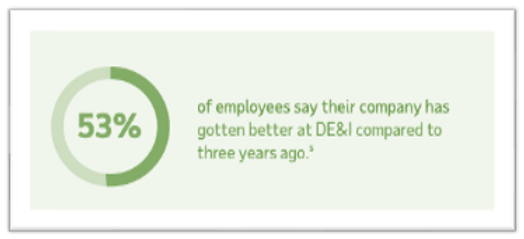Building a Cybersecurity Culture in HR: Safeguarding Employee Data
In the digital age, where information is king, the HR department plays a pivotal role in managing and safeguarding sensitive employee data. As...
4 min read
 Rhonda Aghaie
:
Jul 5, 2024 1:26:51 AM
Rhonda Aghaie
:
Jul 5, 2024 1:26:51 AM

As we open the door to 2024, we see the landscape of Human Resources (HR) compliance continuing to evolve at a rapid pace. The only constant in the dynamic world of HR is change, and with it comes a host of challenges that organizations and HR professionals must navigate to ensure the organization remains compliant with the latest regulations.
2024 brings forth many HR compliance issues, each demanding a strategic and proactive approach. From the ongoing emphasis on Diversity, Equity, and Inclusion (DEI) to the ever-present impact of remote work and the intricate web of pay transparency regulations, HR professionals are at the forefront of addressing these challenges head-on.
In this Insight, we highlight a few of the top HR compliance issues of 2024 with insights and suggestions to help navigate the complexities that lie ahead. As the stewards of organizational compliance, HR leaders must stay vigilant, adaptable, and informed to foster workplaces that not only meet legal standards but also prioritize the well-being and inclusivity of their workforce.
Diversity, Equity, and Inclusion (DE&I) Compliance
Amidst the constantly changing backdrop of HR compliance, DE&I has taken center stage. As organizations recognize the essential need to foster diverse and inclusive workplaces, organizations and HR professionals face unique compliance challenges to ensure policies and practices align with evolving standards.
Strong DE&I practices are a fundamental aspect of organizational success. With corporate leaders' support, HR professionals must create inclusive environments beyond mere representation, fostering a sense of belonging and equity among all employees by updating policies, promoting awareness, and implementing training programs to ensure compliance with evolving DE&I standards.
Suggestions to Consider for DE&I Compliance
When crafting an inclusion-focused DE&I initiative, leverage workforce data for informed decision-making.
Utilize an inclusion survey to assess opinions to help identify areas that highlight a need for change, such as an inclusion-first approach.
Collaborate with a consultative service staffed with DE&I experts to help identify inclusion gaps and recommend/implement steps to improve DE&I focus in the areas of performance management, training programs and talent acquisition.
 Remote Work Compliance Challenges
Remote Work Compliance Challenges
As remote work becomes an integral part of the modern workplace, HR professionals find themselves confronted with a unique set of compliance challenges. The shift from traditional office settings to remote environments introduces complexities that demand strategic solutions to ensure legal adherence and employee well-being. Issues such as tracking work hours, ensuring data security in remote environments, and addressing the legal implications of remote work to meet multi-state compliance continue to be a focal point.
Just imagine learning your employee has moved to a state where your organization is not currently established as a state with employees - creating compliance risks for the organization that can be costly. According to one study, 48 percent of workers say they have relocated or are considering relocating. In a number of situations, the employer is not even aware the employee has moved to another state until after the fact.
Key Points to Consider for Remote Work Compliance
Be Diligent when Tracking Work Hours and Overtime - In a remote work setting, accurately tracking employee work hours and managing overtime becomes challenging. HR professionals must establish clear policies and communication channels to ensure employees adhere to work hours regulations, promoting a healthy work-life balance while avoiding compliance issues related to overtime.
Work with the IT Department to Ensure Data Security in Remote Environments - Maintaining data security is paramount for employees accessing sensitive company data from various locations. HR should collaborate with IT departments to implement robust cybersecurity measures, including encrypted communication channels, secure file sharing, and regular security training for remote employees.
Understand the Legal Implications of Remote Work - Understanding the legal implications of remote work is crucial. Compliance with labor laws, tax regulations, and local employment laws for remote workers becomes a complex task. HR professionals should stay informed about the legal landscape and adapt policies to ensure compliance across diverse geographical locations. The Society for Human Resource Management (SHRM) is a great resource.
Policy Development and Communication - Craft clear and comprehensive remote work policies, covering aspects such as work hours, communication expectations, and data security. Communicate these policies effectively to remote employees to ensure understanding and adherence.
Employee Well-Being and Engagement - Remote work can impact employee well-being and engagement. HR professionals should proactively address isolation and burnout and maintain a healthy work culture in virtual settings. Implementing well-being programs and fostering virtual team-building activities can mitigate these challenges.
Flexibility and Adaptability - The remote work landscape is dynamic, requiring HR to remain flexible and adaptable. Regularly review and update remote work policies based on evolving legal requirements and the changing needs of the workforce.
Training and Support - Provide remote employees with training on compliance expectations and the proper use of remote work technologies. Offer ongoing support to address any challenges they may face, ensuring a smooth and compliant remote work experience.
Wage and Hour Compliance in a Changing Landscape
The wage and hour compliance landscape extends beyond traditional considerations with the rising importance of pay transparency. Organizations must now navigate not only changes in minimum wage laws, overtime regulations, and employee classifications but also the increasing demand for openness regarding compensation practices. Review the following points for recommendations as you evaluate your organization's compensation philosophy.
Key Points to Consider for Wage and Hour Compliance
Evolving Minimum Wage Laws - Stay abreast of changes in minimum wage laws at federal, state, and local levels. Understand scheduled increases, regional variations, and industry-specific requirements to ensure compliance. Collaborate with legal experts to navigate the complexities of both wage and hour laws and pay transparency regulations. Ensure policies align with legal standards and proactively address any potential compliance issues.
Overtime Regulations and Employee Classification - Carefully navigate changes in overtime regulations and employee classification. Ensure proper categorization of employees as exempt or non-exempt, considering factors like job duties and salary thresholds to prevent compliance issues. Ensure HRIS systems are accurately structured to reflect the multi-state overtime regulations for states where the business operates.
Independent Contractors - Accurately classify workers as employees or independent contractors. Consider factors such as control over work and contractual agreements to avoid misclassification issues. Consult with the internal legal department to validate when in doubt.
Pay Transparency Compliance - With the increasing demand for pay transparency, HR professionals must align practices with evolving expectations. This includes providing clear communication on how compensation decisions are made, ensuring fairness, and addressing any disparities in pay based on gender, race, or other factors.
Compliance Audits and Regular Reviews - Conduct regular compliance audits, focusing on payroll records, employee classifications, and adherence to pay transparency standards. Regular reviews ensure compliance with traditional wage and hour regulations and emerging pay transparency expectations.
Continuous Training for HR Teams - Empower HR teams with continuous training on wage and hour compliance and pay transparency. Keep them informed about changes in labor laws and transparency expectations, enabling them to address employee inquiries effectively.
In the labyrinth of HR compliance, HR professionals are the architects of compliance, shaping cultures that transcend regulations and embody the organization's values. The strategies for success involve continuous learning, proactive policy updates, leveraging technology, collaboration with legal experts, and empowering HR teams with the knowledge and tools needed to navigate these complexities.

In the digital age, where information is king, the HR department plays a pivotal role in managing and safeguarding sensitive employee data. As...
Imagine this scenario: your workplace embraces transparency (either proactively or based on new state regulations), and the curtains are drawn back...

Imagine a boardroom where voices harmonize from different backgrounds, a mosaic of perspectives painting the canvas of innovation. Now, picture a...